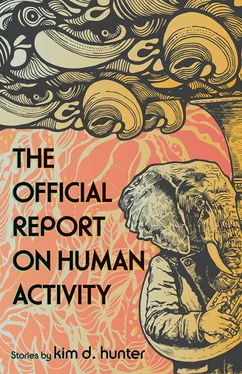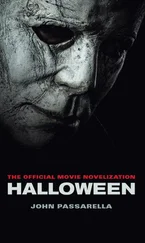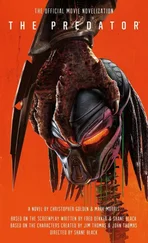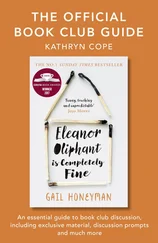“If you felt that you were close to discerning the meaning of the symbols, why did you quit?” the reporter asked.
“We didn’t really quit,” the Egyptologist replied, hoping the tenor of the questions would change.
“We?”
“My colleagues and I.”
“Oh yes, your colleagues. I thought you said they were no help.”
“Well, you need help on a project of this scale.”
“Would you mind,” the Librarian interrupted, “if I take a look at this book?”
She had been casting her eyes about, noting all of the unusual titles on Egypt and the Middle East when she stumbled upon The Suburban Bitch . The Egyptologist was silent. The Librarian had opened the book and read a few sentences before she realized he hadn’t answered. She looked up to see him staring at the book with a look of embarrassment and fear.
“I’m sorry,” she said, “I can put it back.”
“My brother…”
“Did your brother write it?” the reporter asked.
“My brother’s murderer wrote it and then she killed herself. I can’t bring myself to throw it away.”
“You realize,” the teacher replied to the Girl, “that ours is not the only class to ask to visit the elephant and that there are many adults, parents and school staff, that have concerns about such a visit?”
“What if we just write letters that ask about moving the elephant? We could just say we want the elephant moved for all the reasons the people in the library say they want it moved.”
“What are those reasons?”
The Girl had to think for a moment. She had not discerned the reasons put forward because she had been so enraptured by the sight of the storyteller. She also assumed that the teacher had seen the library people on television and actually knew what the man’s lips were saying, assuming they had stopped long enough to create a sentence. The Girl’s silence brought a sad smile to the teacher’s lips. The Girl closed her eyes and said the first thing that came to her.
“I feel like this is the right thing to do.”
She opened her eyes and saw the teacher’s smile wasn’t quite so filled with pity as it had just been, and it gave her confidence to press the issue.
“What if we just do it as a writing lesson, to practice how to write a good essay? We could make it an essay instead of a letter. We don’t have to show it to anybody. It will still be good writing.”
“Why does that make me dark,” snapped the media consultant, looking at the skin on her bare arm as if to make sure it was still there. “And what does it matter?”
“Well you’re right of course. You can say you are lighter or darker—that’s your choice—or be between the two.”
The Librarian tried to be as nonjudgmental as she could. She spoke in her best “can I help you voice,” mustering the kind of sincerity she reserved for children, the elderly, or those who came to the library to practice their English. She waited a moment before sitting next to the consultant. She waited even longer before she spoke again.
“I didn’t know your mother was an author and I was sad to learn how she died.”
Now the consultant felt a mixture of relief and fear, relief that the Librarian probably knew the whole story and would not probe her for details, fear that, despite her calm tone, the other woman might somehow use the information against her. So she tried to head the Librarian off at the pass and jumped to the facts that brought her the most shame.
“I can’t help where I was born.”
“None of us can. I wouldn’t hold anything like that against you. I think you have overcome tremendous odds.”
“A credit to whichever race I claim at any given moment.”
“I am curious though as to how—”
“How I ended up as a media consultant? I dealt with everything pretty well until after the suicide. She had everything to live for. It was the book. They were talking about changing her sentence to time served. I thought, this is it. The long funky nightmare is coming to an end.
“Then one day, about a year ago, I was visiting a school, doing my gig with a bunch of fifth graders. They had all heard the stories I had to tell before I arrived. I didn’t care. I was good and I had my stories here and here,” she pointed to her head and heart as she spoke. “I looked straight into their eyes. It works every time. You can stop a snake in mid-strike or a charging bull if you catch the eyes the right way. I learned that from the storyteller that used to visit the prison. She looked like she was a thousand years old, clearly dark, had a way of laughing to herself and the cutest impish smirk. Anyway, I had done “Snow White and Rose Red” and I was pretty far into Scheherazade when someone called the teacher to the door. Then the teacher called me. It took her a while to get it out, that my mother had hung herself with a sheet. I haven’t told a story since that day.”
* * *
It took a few days for the Girl’s class to write the essays in support of the elephant being moved to the library. Most of the essays weren’t very good. Most of the students thought the elephant was strange and they didn’t really understand what the fuss was about. The Girl was one of the few that took the writing assignment seriously.
I believe the people I saw on television talking about moving the elephant to the library had the right idea. I believe the man that gave birth to the elephant would have been thanked by all of us if he had stayed alive. He would have been thanked for putting such a joyous message into the world. Now that he has said all there is to say about color, about how we see the two colors, black and silver, we can all solve many, many problems. We should be thankful for his ideas or perhaps just use his ideas since he probably wanted us to use them and has no use for them now.
I am sure, when we stop to think about it, we will all agree that the library is the place where people go when they want a better way to see the world, not the hospital.
The teacher had to point out to the Girl that her first draft didn’t actually explain the message.
* * *
Upon their arrival, the Librarian’s boss couldn’t focus on anything except the students’ essays. The Librarian was overcome by what she had learned about the media consultant.
“It’s a mind boggling story, really. Her mother was in denial about the pregnancy, the assault, everything but the murder.”
“We could sponsor a contest, her boss pronounced, oblivious to what she’d said. ‘Give us your best elephant story.’ What would be an appropriate prize though?”
“They wouldn’t even let her out to have the baby. Then, years later, when they might have let her out, she kills herself.”
“This is the essay we’ll use. Let’s call it a letter. Listen to this, ‘the library is the place to go when you want a better world.’ I wish I’d had this at the news conference, but no matter. I have it now and the world will have it soon, and they won’t be able to resist it.”
“She had told the ‘Snow White and Rose Red’ story hundreds of times and never focused on the lines ‘Snow White, Rose Red, will you beat your lover dead?’ It had just washed over her without sinking in.”
“I won’t need the consultant this time. We’ll get the student to read on camera.”
“And then there’s the switch from storytelling to media consultant after memorizing virtually the whole fairytale canon so she could recite them without text.”
“But we may need her to help guide the children.”
“I don’t think she really needs to probe the whole career switch thing, the trauma behind it.”
“I need you to get the consultant on the phone.”
Читать дальше












